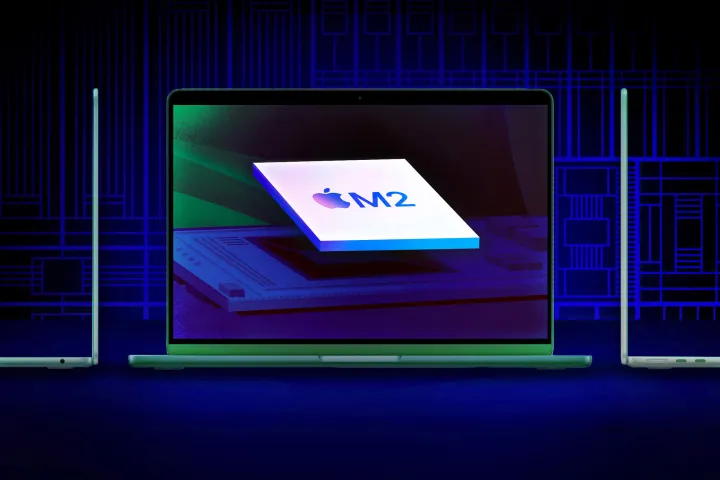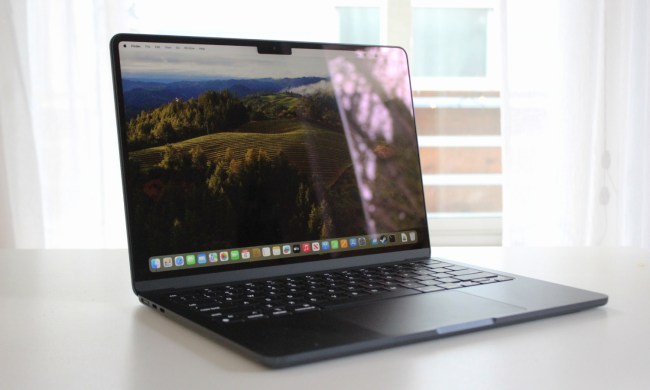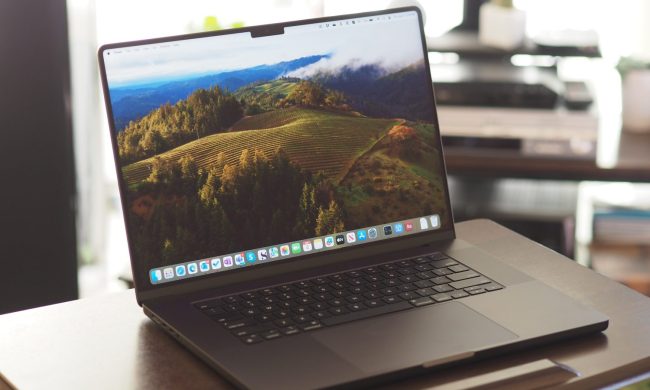Apple’s new M2 chip appeared in a leaked Geekbench 5 test today. Found inside the upcoming 13-inch MacBook Pro, the latest iteration of Apple silicon certainly did a good job — so much so that when compared to the Intel-based $6,000 Mac Pro, the M2 chip is actually the winner.
Based on the leaked benchmark, the M2 has proven itself to be up to 20% faster than the M1, thus surpassing Apple’s own expectations for the chip. Aside from beating the high-end Mac Pro, the M2 also wins against the M1 MacBook Pro.
CPU Benchmarks have leaked for Apple's M2 chip!
3.49GHz CPU clock vs M1's 3.2GHz
Single-core performance gain vs M1: 11.56%
Multi-core performance gain vs M1: 19.45%A little bit better than my estimates. I'm impressed!https://t.co/TGHOHw77Ds
Thanks to @amoss_137 for sharing. pic.twitter.com/NS9xODnOdX— Vadim Yuryev (@VadimYuryev) June 15, 2022
Although the 13-inch MacBook Pro is not even up for pre-order just yet, we already have the first benchmark results for the notebook, and thus, the first benchmarks of the M2 chip. Apple itself has predicted a performance boost of around 18% when switching from the M1 to the M2. These are still early days, and we only have the results of one benchmark, but so far, so good — the M2 managed to do a better job than what Apple itself had teased during its announcement.
The M2 and the M1 both have eight cores, which amounts to four performance cores and four efficiency cores. However, the M2 has higher clock speeds, hitting 3.49GHz compared to the 3.2GHz provided by the M1. The M2 also wins out by the number of GPU cores, bringing it up from eight to 10.
In the Geekbench 5 test, the 13-inch MacBook Pro with the M2 chip scored 1,919 points in the single-core test and 8,928 in the multi-core test. Both mark an increase from the M1, which scored 1,707 and 7,419, respectively. This adds up to an 11.5% improvement in single-core performance as well as a 19.5% boost in multi-core. These scores put the M2 just a fringe above what Apple teased.

The two extra GPU cores on the M2 are definitely doing their job as well. In the Metal benchmark, the M2 scored 30,627 points compared to the 21,001 of the M1. That’s a whopping 45% increase between the two chips.
Comparing the M2 to the M1 is a logical thing to do, but perhaps the more exciting duel is between the M2 chip and the latest Mac Pro, which still hasn’t been upgraded to Apple silicon. MacRumors compared the base model of the 2019 Mac Pro, priced at $5,999, to the new 13-inch MacBook Pro, priced at $1,299. The outcome shows that the M2 chip dominates the somewhat aged, but ever-so-expensive Mac Pro, winning by 11% in multi-core performance.
Of course, when comparing the Mac Pro to the 13-inch MacBook Pro, one has to consider the other factors provided by the desktop. It can be decked out with more storage, there are various GPU options, and there’s also a more expensive model with 12 cores as opposed to the eight found in the base version. However, when you consider the nearly $5,000 difference in price between the Mac Pro and the new MacBook, it’s hard not to applaud the M2 chip — and even more eagerly await the release of an Apple silicon-based Mac Pro.
First announced at the WWDC 2022, the M2 chip will first be found inside a new MacBook Air and inside the aforementioned 13-inch MacBook Pro. While it’s true that the M2 will usher in the next generation of Apple silicon, it’s still not quite as big a leap from the previous gen as some might have hoped for. We may have to wait until the M3 to see a true generational jump with a massive performance increase.
We won’t know the true performance of the M2 chip until more benchmarks emerge, but so far, these results are encouraging. Future Apple devices, including the rumored Mac Pro, will likely be decked out with some version of the M2, so undoubtedly, we’ll be seeing a lot more of it in the next few months.



